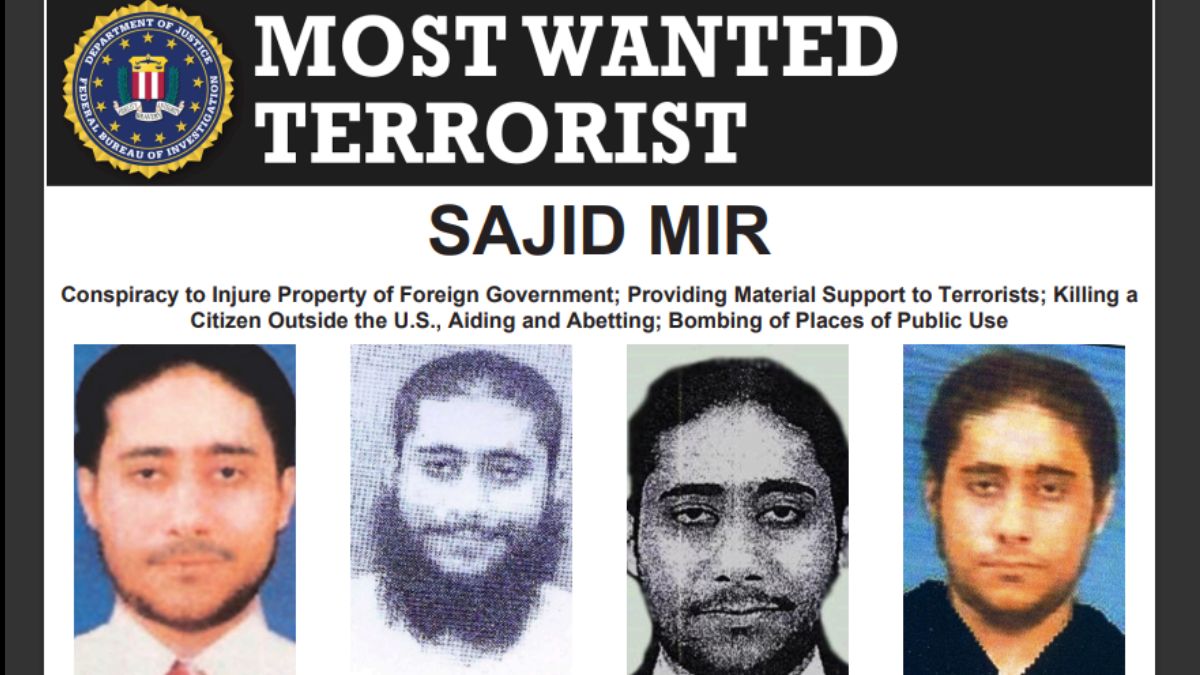Who is Sajid Mir? The glaring example cited by India of Pakistan terror complicity after Operation Sindoor
 From the FBI Most Wanted document on Sajid Mir | FBI
From the FBI Most Wanted document on Sajid Mir | FBI
A man with a beard and hair down to his shoulders—who is believed to have gone through plastic surgery to remove the scar on his face—is Sajid Mir, project manager of 26/11 terror attacks who is on top of the mind of the Indian security brass when it talks of Pakistan’s complicity in terrorist acts against India.
As India on Wednesday cited Mir’s example during the press briefing after India carried out precision strikes on terror camps in Pakistan and Pakistan-occupied Kashmir (PoK), the focus at once was on the global pressure on Islamabad to act against terrorists like Mir who are a thorn for not only Indian security establishment but also the counter-terror agencies in the United States.
The FBI has well-documented evidence of Mir guiding Pakistani attackers from the Pakistani control room during the Mumbai siege.
Mir was put on the FBI’s most wanted list, but action back home remained pending as Pakistan ISI continued to fund him and ensure his stay in the country, sources said.
Addressing a press briefing after Operation Sindoor, foreign secretary Vikram Misri said Mir—wanted for involvement in 26/11—was declared dead but was “brought back to life” again after international pressure was built on Islamabad. “This is the most glaring example of Pakistan’s support and nurturing of terror elements on its soil,” he said.
Sources revealed Mir’s connections with the Pakistani deep state made him a commander of terror operatives looking for a global footprint, as his connections with Lashkar-e-Taiba, Al Qaeda commanders like Illyas Kashmiri, and other terror outfits across nations from Nepal, Denmark to Australia made him a potent force.
Sajid Mir has spent a large part of his life undercover, sources said. He is learnt to have set up a restaurant in Bangkok and a textile business in another country as fronts for his terror activities. He used the Lashkar-e-Taiba network of Abdur Rehman Hashim alias Pasha, a member of Ilyas Kashmiri camp and Major Abdul Rahman in Pakistan for terror training before 26/11 while directing LeT operative David Headley to use a cover to recce the targets. It is Tahawwur Rana, the LeT terrorist recently extradited by India, who gave Headley the cover that finally helped Mir to stitch together the 26/11 strike.
In recent years, intelligence agencies spotted his movement around the Muridke camp of Lashkar-e-Taiba, even as New Delhi demanded action against the terror perpetrator and the United States offered a reward for information that could lead to the arrest of Sajid Mir.
India